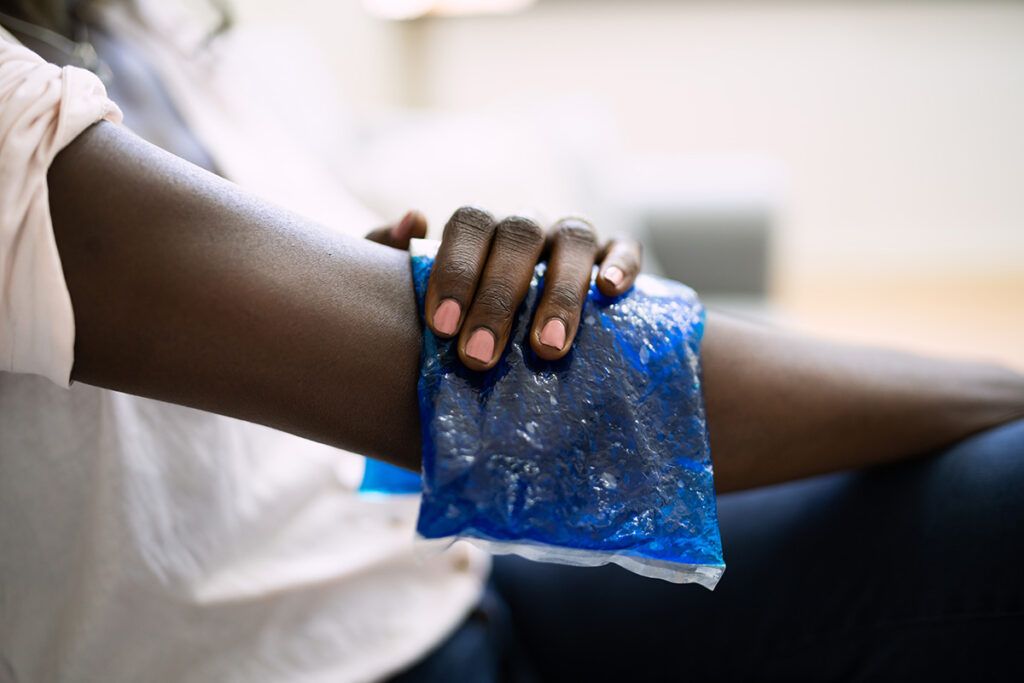Shingles is caused by the varicella-zoster virus (VZV), which is also the virus that causes chickenpox. After having chickenpox, the virus remains in the body in a dormant state. If it reactivates, it can result in shingles.
Generally, the body’s immune system keeps the VZV dormant, but when your immune system weakens, the virus may become active, causing shingles. If you have shingles, a healthcare professional can prescribe antiviral medications to shorten the length of the illness and to help prevent serious complications.
There are several reasons shingles may reactivate in the body, including:
Reduced cell-mediated immunity
The general cause of shingles is the reactivation of the varicella-zoster virus (VZV). After you recover from chickenpox, either as a child or an adult, the VZV virus stays dormant in the body along the nerve roots of the spine and skull. You develop shingles if the virus becomes active again and moves along the nerve to the skin.
Reactivation can occur because of lower immunity, allowing VZV to move out of its dormancy. Researchers call this reduced cell-mediated immunity. It can result from a number of triggers that lower immunity, including high stress levels and physical illness.
High stress levels
Periods of high stress may lead to lower immunity and trigger the activation of shingles.
In a large 2021 study, researchers found that people with a high level of perceived stress had a 14% greater risk of developing shingles. The researchers arrived at this number after factoring out things like age and use of immunosuppressant drugs.
Immunosuppressant medications
Medications that suppress the immune system can increase the risk of shingles.
A 2016 review of studies indicated that people who received biologic therapy, non-biological disease-modifying antirheumatic drugs (nbDMARDs), or corticosteroids had a higher risk of developing shingles.
A 2022 study looking at a sample of French insurance claims showed shingles complications were 3 times more frequent in people on immunosuppressants. Data also indicated that those taking immunosuppressants tended to have longer-lasting postherpetic neuralgia, a burning pain that can occur along the nerves and skin.
Acute or chronic illness
According to the American Medical Association (AMA), physical stress from an injury or illness can also trigger shingles. This covers many kinds of physical stress, such as living with a long-term condition like cancer, breaking a bone, or having a severe viral infection. Sometimes even a mild illness like the common cold can weaken your immune system temporarily, increasing your risk of developing shingles.
Some illnesses can weaken your immune system over the long term, making it more likely for you to develop shingles. Examples include the human immunodeficiency virus (HIV) or the most advanced stage of HIV, acquired immunodeficiency syndrome (AIDS).
Older age
Although shingles can occur at any age, it’s much more common in older adults. Age is more of a risk factor for developing the condition rather than a trigger.
In the United States, about half of all cases of shingles develop in people ages 60 years or older, according to the National Institute on Aging (NIA). The risk increases even more in those over age 70 years.
The reason for the increased risk with age is thought to be due to immune system changes, per the AMA. As a person gets older, their immune system typically becomes weaker.
Treatment options

The main treatment option for shingles is antiviral medications. These drugs do not cure the condition but can help reduce the chances of severe pain. They can also reduce the length of the illness.
The antiviral medications available for shingles are:
- acyclovir (Zovirax)
- famciclovir (Famvir)
- valacyclovir (Valtrex)
You can also manage shingles symptoms with several at-home remedies, such as:
- bathing in oatmeal or using calamine lotion to help soothe skin itch
- applying a cool compress or washcloth to blisters to help ease pain and help the blisters dry
- wearing clothing that is flowing and loose to help avoid irritating skin
Over-the-counter pain relievers such as acetaminophen (Tylenol) or ibuprofen (Advil) can help alleviate symptoms while you recover from shingles.
Need a diagnosis or prescription quickly? Optum Perks offers personalized on-demand care in as little as 15 minutes with no video or appointment required. For $25, answer a few questions online and receive a diagnosis and treatment plan from a board certified healthcare professional. Get started here.
